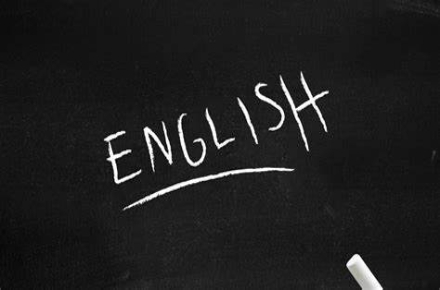College Admission For Master of Arts in English
MA English Literature
Introduction of the Program:
M.A English programme is expected to be highly beneficial to the student community in the present job market as this programme introduces new innovative ideas coupled with soft skill training and communicative skill oriented curricula to cater to the current needs of the students while going for jobs in Govt services / Public undertaking institutions / organizations . As there is huge demand for English staff / professionals, this course is designed in such a way to stimulate interest in the minds of the students to pursue their studies with interest and dedication. This course will definitely prove to be an effective tool or asset for those who are preparing for Net / SET/ UPSC/TNPSC examinations and other competitive examinations for career opportunities.
Objectives of the Program:
Outcome of the Program:
The syllabi for M.A English has been designed in such a way that the students, when they go out, will be capable of facing the competitive situation prevailing now and getting placement in Govt. Institutions and Public Undertaking Organizations.
Employment Roles: Lecturer / Speaker, Content Writer, Technical Writer, High School Teacher, Primary School Teacher, English Language / Literature Teacher - Postsecondary, Editor, Copy Editor etc.
| Semester 1 | Semester 2 | Semester 3 | Semester 4 |
|---|---|---|---|
|
Lecture 1.1
Chaucer to Marvel
|
Lecture 1.1
The Augustan Age
|
Lecture 1.1
Indian Writing in English
|
Lecture 1.1
New Literatures in English
|
|
Lecture 1.1
Shakespeare
|
Lecture 1.1
The Romantic Age
|
Lecture 1.1
Study of English and English Language Teaching
|
Lecture 1.1
Translation - Theory & Practice
|
|
Lecture 1.1
American Literature
|
Lecture 1.1
The Victorian Age
|
Lecture 1.1
Twentieth Century Literature
|
Lecture 1.1
Research methodology
|
|
Lecture 1.1
Introduction to Comparative Literature
|
Lecture 1.1
Canadian Literature
|
Lecture 1.1
Literary Criticism
|
Lecture 1.1
Project
|
|
Lecture 1.1
SSS Course Level - I
|
Lecture 1.1
SSS Course Level - II
|
Lecture 1.1
SSS Course Oral Communication Level - I
|
Lecture 1.1
SSS Course Oral Communication Level - II
|
-
UNITIZATION
Each subject contain five units which are interrelated each other. Not only core subjects, but elective and non-major elective also contain the same.
-
PATTERN OF SEMESTER EXAM
Theory Subject
Total Marks: 100 (Internal: 25 Marks, External: 75 Marks)
Practical Subject
Total Marks: 100 (Internal: 40 marks, External: 60 Marks) -
SCHEME OF EVALUATION
The performance of a student in each course is evaluated in terms of percentage of marks with a provision for conversion to grade points.
-
TRANSITORY PROVISION
A Transitory provision of three years has been given for the benefit of the students who come under the old syllabus.
-
EXTERNAL EXAM
A Candidate who does not pass the examination may be permitted to appear in the failed subjects in the subsequent examinations. A candidate should get registered for the first semester examination.Students must have earned 75% of attendance in each course for appearing for the examinations. Students who have earned more than 70% and less than 75% of attendance have to apply for condonation in the prescribed form with prescribed fee. Students who have earned more than 60% and less than 70% of attendance have to apply for condonation in the prescribed form with prescribed fee along with a medical certificate. Students who have below 60% of attendance are not eligible to appear for the examination. They shall re-do the semester(s) after the completion of the programme.
-
PASSING MINIMUM
The passing minimum is 40% (External minimum is 27 out of 75; No minimum for internal, but External + Internal should be at least 40)
-
RE-TOTALING AND REVALUATION PROVISION
Candidates may apply for revaluation for the paper which was already evaluated, within 10 days from the date of publication of the result in the university website, through specified revaluation forms along with required fees.
-

BRINDHA
English Professor -

JOTHILAKSHMI
English Lecturor -

KARTHIK
English Professor -

SANKARRAMAN
English Professor









